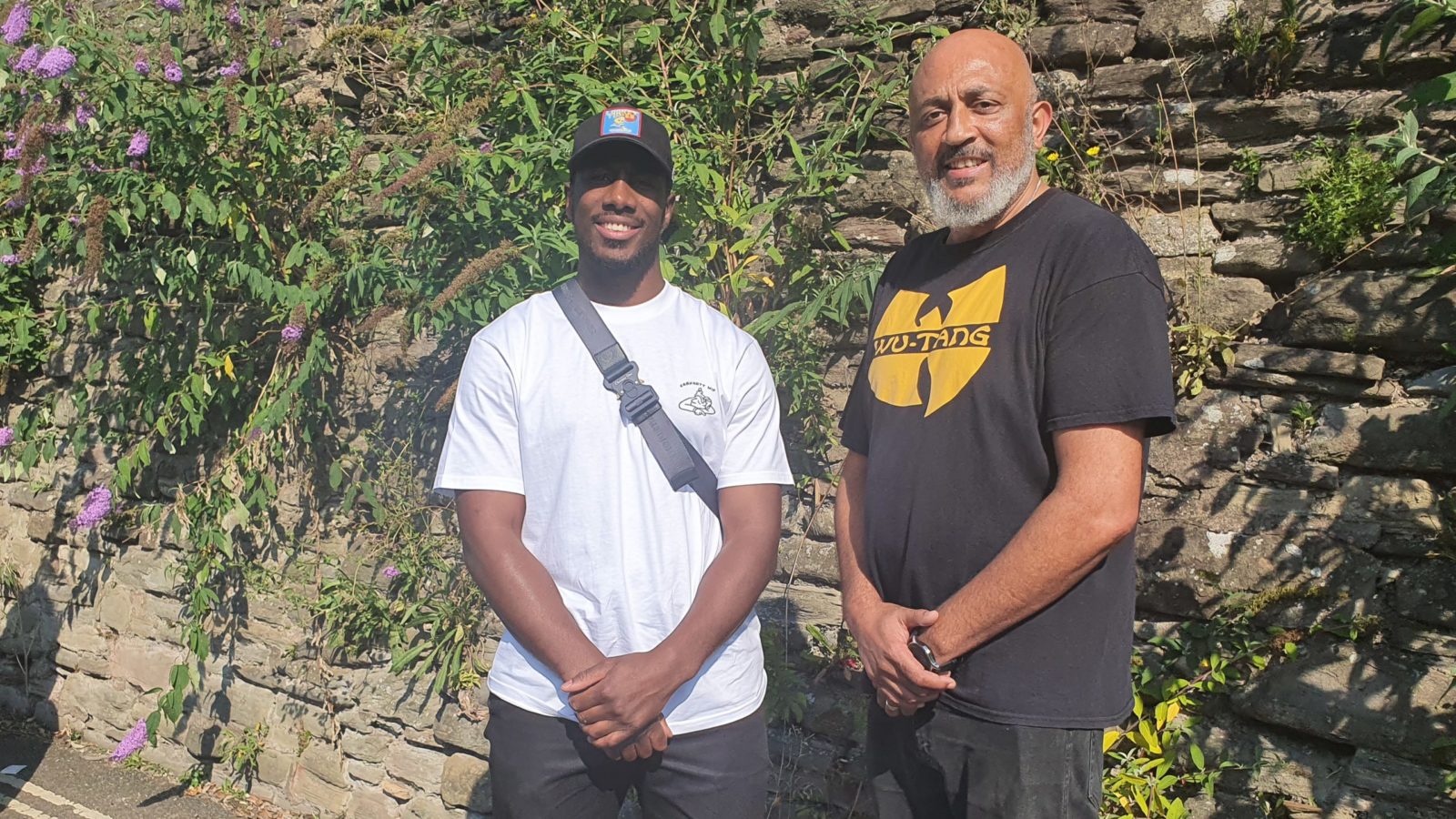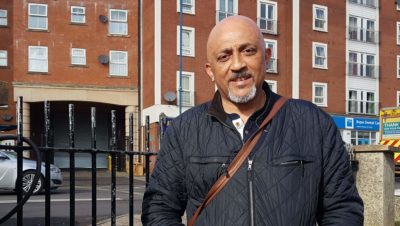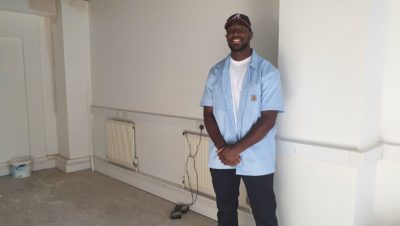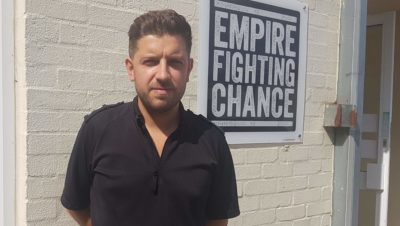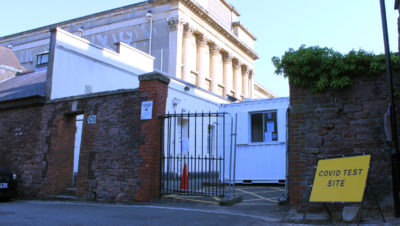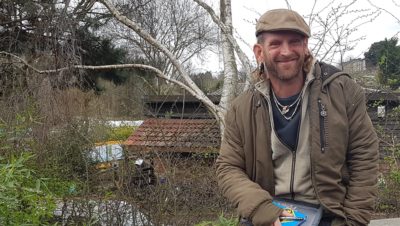Features / Feature
School exclusions: The young people at risk of slipping through the cracks
It may not look much from the outside, but a nondescript building in St Philip’s is providing a source of hope and purpose for young people at risk of slipping through the cracks.
Inside, a small group is discussing a ground-breaking new academy project that will provide opportunities for teenagers not in mainstream education, some of whom see the path of criminality as their only choice.
“I know what it feels like to feel you have no opportunities,” says Anton Brown, an entrepreneur and founder of BIIIG, which stands for ‘build, imagine, innovate, inspire greatness’. “I just know this is going to change so many lives.”
is needed now More than ever
His self-funded project will see the launch of a new academy on Dean Street, just off Portland Square, that will provide NVQ training courses for teenagers not currently in employment, education or training, as well as a top-of-the-range music studio, kitchen, creative hub and move-on job roles.
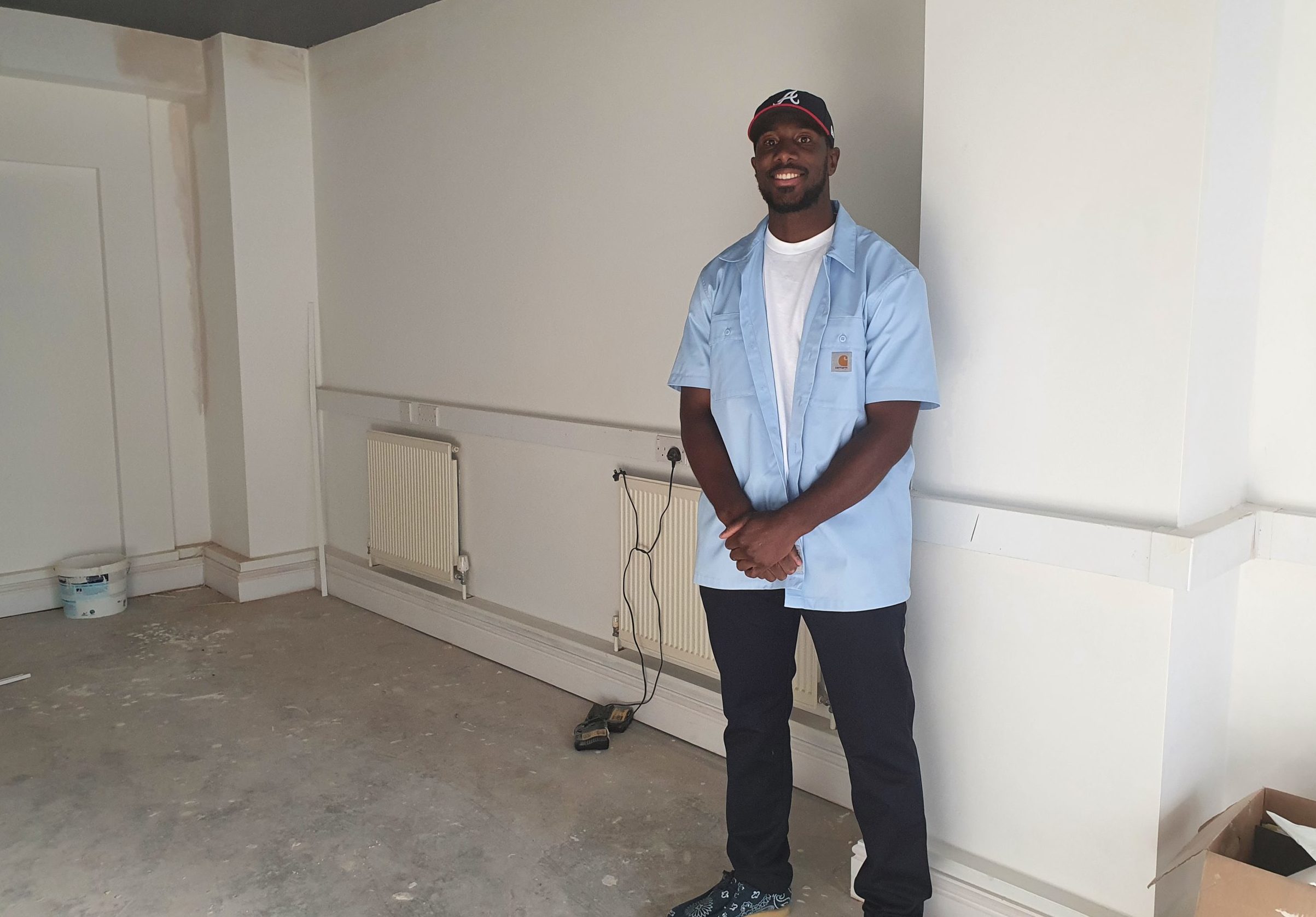
Anton Brown is launching BIIIG Academy in St Paul’s – photo by Ellie Pipe
“I’m tired of seeing the stereotypical stories,” continues the founder of Eco Sheen, who grew up in St Paul’s and Easton. He set up BIIIG in honour of Tyrone Hayman, who was fatally stabbed in Bedminster last year and was the person who first inspired Anton to become a mentor to young people from similar backgrounds to him.
“The need and want for what I’m offering in St Paul’s is there,” continues Anton. “It will act as an umbrella for young people who are hurting right now. Nobody has given them opportunities or shown them that it is possible for them to have what they think they can’t have.”
By Anton’s side is Desmond Brown, the independent chair of the Lammy Review group for Avon and Somerset, which is investigating racial bias in the criminal justice system.
Desmond, who founded Growing Futures CIC in 2013 to help provide educational opportunities for disadvantaged and marginalised communities, recently decided to take matters into his own hands to prevent vulnerable young people being put at risk on the streets.
Having already set up a network of peer mentors, he acquired the building in St Philip’s in March, using his own money to provide a safe alternative and somewhere that can provide learning opportunities, food and life skills.
But Desmond is also working closely with others to tackle the root causes of what he sees as the systemic problem of exclusions.
While the number of pupils being permanently excluded from school has dropped in recent years, fixed-term exclusions (FTE) have risen and Bristol has among the highest rate in the country, ranking seventh highest out of 152 local authorities, according to recent council figures.
The closure of schools through the pandemic highlighted their importance to the safety, education and wellbeing of young people. Yet, for significant numbers who were already falling through the cracks, returning to regular classroom hours is not an option.
The impact on those affected is not only a loss of education, but also heightened vulnerability and increased risk of criminal exploitation.
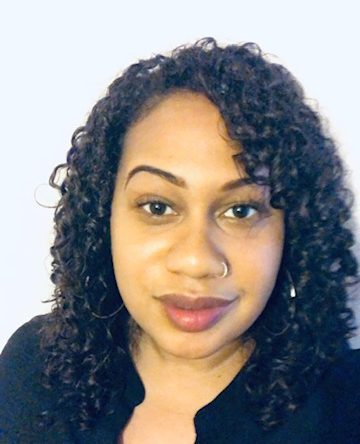
Maya says it is sad that, as a community, we don’t recognise the talent lost – photo courtesy of Maya Mate-Kole
“It’s completely detrimental and the sad thing is we do not see it as opportunities lost or how we have deprived ourselves of talent,” says Maya Mate-Kole, a youth worker who is leading the task and finish group for youth justice as part of the Lammy Review group.
“We meet so many young people who have so much potential and we see how they could have thrived if they had been supported and nurtured in education, but they have become ‘invisible’.”
The figures highlight vast disparities in those being excluded. Boys account up 72 per cent of FTEs, according to 2017/18 Bristol City Council figures. 67 per cent of all FTEs are in receipt of pupil premium funding (granted for students from disadvantaged backgrounds), 47 per cent have special educational needs or disabilities and 23 per cent are black, Asian and minority students.
The reported numbers fail to paint the full picture of a system where managed transfer of pupils between different schools, long periods of time in isolation and lack of full-time attendance are common.
For the FTEs that are recorded, the most common reasons given are ambiguous – with the ‘other’ category accounting for 29 per cent of exclusions and ‘persistent disruptive behaviour’ 28 per cent – leaving the system open to interpretation and bias.
Maya believes there are a lot of structural and systemic issues that need to be addressed. “We are talking about some of the most traumatised young people and they are managed in terms of ‘risk’,” she says, adding that the holistic support is not there for those who need it the most.
The pandemic has amplified vulnerabilities and exposed more young people to gang-associated activities and exploitation, according to a report, Hidden in Plain Sight, by the National Youth Agency that highlighted the vital need for youth services.
Desmond firmly believes that cutting school exclusions will cut youth crime.
“The safest place for a child is in school but many young people and their families don’t know what their rights are,” he tells Bristol24/7.
“There is a hardcore five per cent involved in serious crime and around ten per cent on the fringes. Then 85 per cent still get tarred by the same brush when they have done nothing. I remember being a young person and thinking ‘why don’t I just be the way they think I am?’”
Desmond and his team want to show there is a different way.
Expanding on this theme, Beaula McCalla, operations manager for Growing Futures, talks about the importance of a holistic approach that involves parents and communities.
“A lot of these young people are making their own values – what they see is so dysfunctional, they create their own way,” says Beaula, who worked as a teacher in mainstream education before joining Growing Futures and says the existing systems are failing some children.
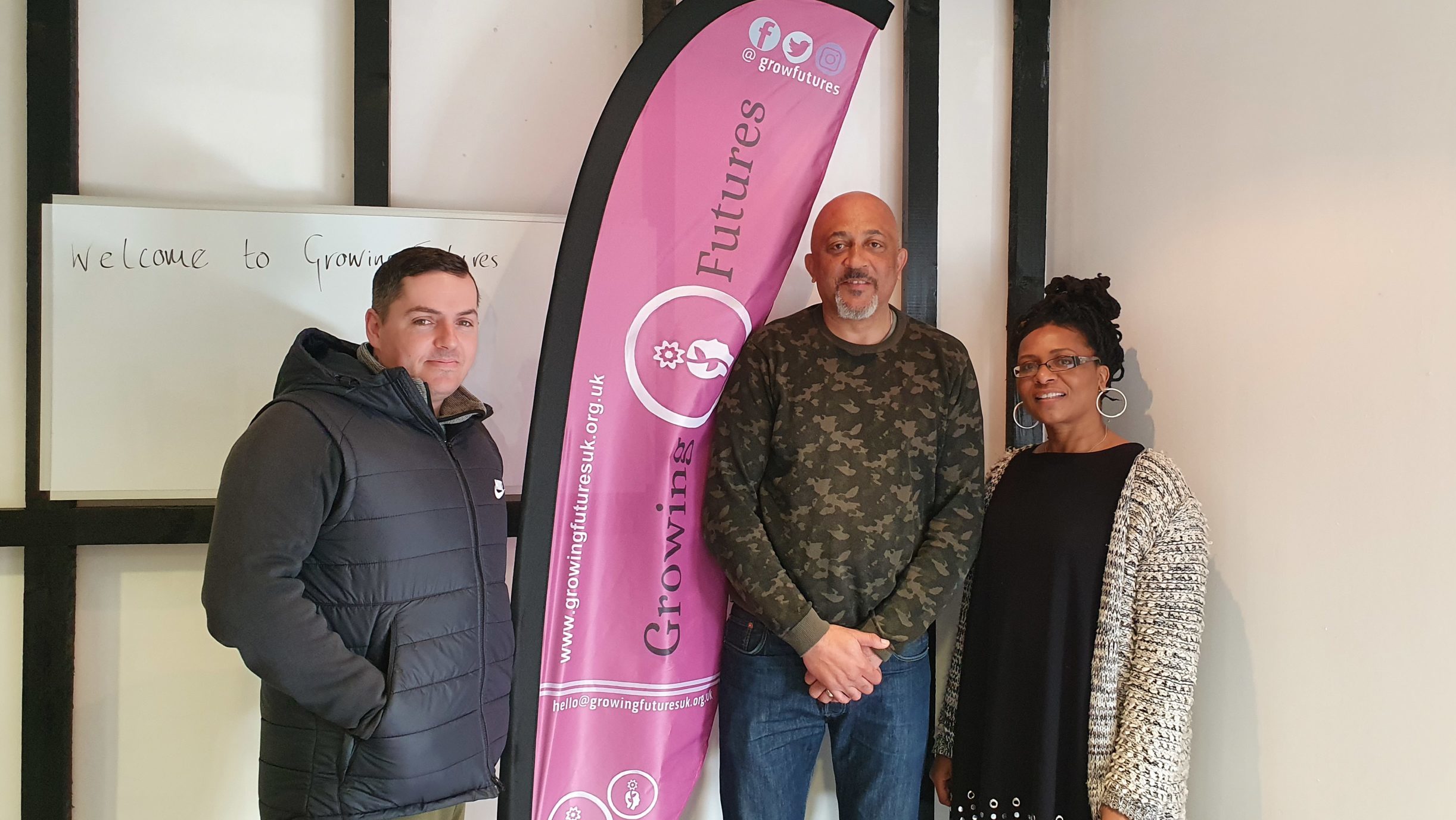
Ian Fleming (left), Desmond Brown (centre) and Beaula McCalla (right) of Growing Futures say existing systems are failing come people – photo by Ellie Pipe
Standing in the newly-refurbished gym in the Growing Futures building, mentor Ian Fleming talks about the difference projects such as these are already making to the lives of young people.
“A lot of these kids have trust issues and an issue with authority, he says. “But the kids I work with all want to have a career; they don’t want to go to prison and have a life without hope. By having this space and opportunities for them to progress without fear, it’s really positive.”
Beyond the immediate need to provide resources for those young people with nowhere to go, there is a need to reform the education system and curriculum to make it relevant for all, say campaigners.
“Within education, it’s a complete cycle,” says Maya. “Our young people have poor experiences of education, the curriculum and wider system, so they are not interested in going into teaching.
“How we break the cycle of under-representation is the complicated bit because we need to change the structure in order to change the way young people view education.”

BIIIG Academy in St Paul’s will provide training opportunities and a safe creative hub – photo by Ellie Pipe
‘I don’t believe a school should be in a place where the only option left to them is exclusion’
Lana Crosbie has been a teacher in Bristol for 20 years, working in secondary schools and with SEND students. In September 2019, she set up No More Exclusions Bristol, a grassroots campaign to abolish exclusions entirely.
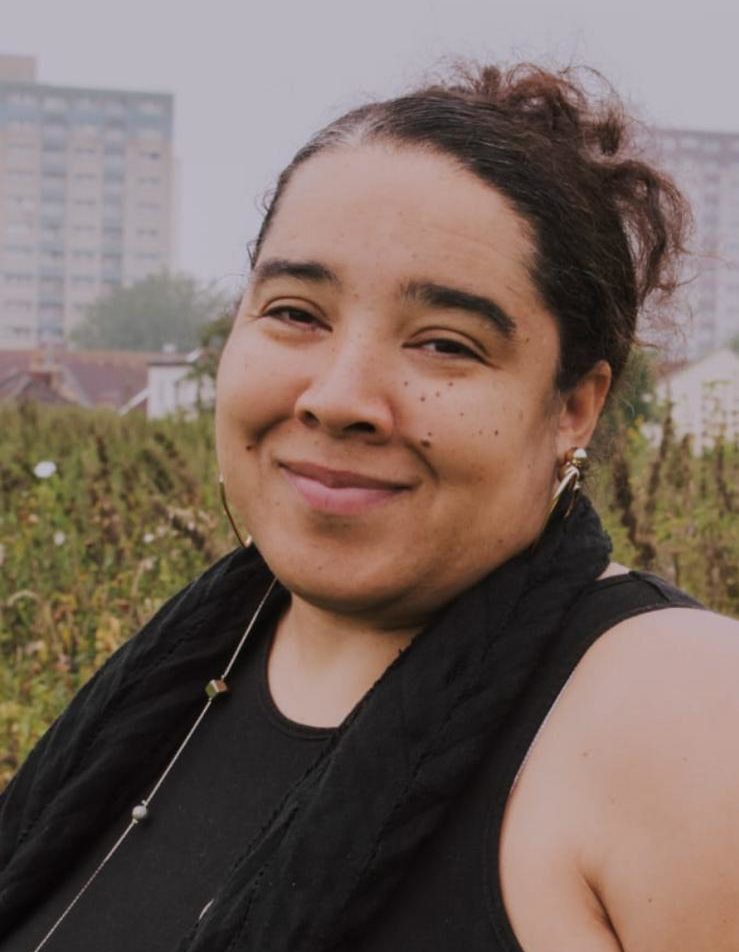
Lana says no schools should need to resort to excluding students – photo courtesy of Lana Crosbie
“I have seen a lot of students slip through the system,” she tells Bristol24/7, arguing that much of the process is open to teacher interpretations, allowing for racial bias and lack of cultural understanding.
“There are so many interventions we should be putting in place, exclusions should not be on the table,” continues Lana. “I don’t believe a school should be in a place where the only option left to them is exclusion. It’s really damaging for these young people; it interrupts their education and limits their future options and, when you are from a marginalised group, it just doubles down on the inequalities already faced.”
The teacher argues a trauma-informed approach, supportive measures; such as counselling, and investment in creating a better learning environment and training staff are just some of the measures that could be applied instead of exclusions.
“It’s just a perpetual cycle that has got to be broken and it’s time to stop the pain,” says Lana.
“This is our children and our community – it’s up to use to fight social injustice.”
Read more: A leap of faith to break the cycle of criminality
 Our newsletters emailed directly to you
Our newsletters emailed directly to you